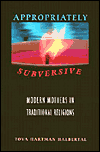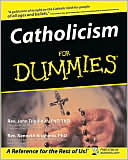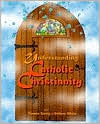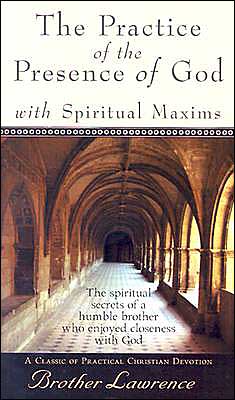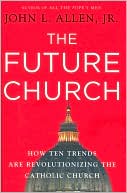Appropriately Subversive: Modern Mothers in Traditional Religions
How do mothers reconcile conflicting loyalties—to their religious traditions, and to the daughters whose freedoms are also constrained by those traditions? Searching for answers, Tova Hartman Halbertal interviewed mothers of teenage daughters in religious communities: Catholics in the United States, Orthodox Jews in Israel.\ Sounding surprisingly alike, both groups described conscious struggles between their loyalties and talked about their attempts to make sense of and pass on their multiple...
Search in google:
How do mothers reconcile conflicting loyalties—to their religious traditions, and to the daughters whose freedoms are also constrained by those traditions? Searching for answers, Tova Hartman Halbertal interviewed mothers of teenage daughters in religious communities: Catholics in the United States, Orthodox Jews in Israel. Sounding surprisingly alike, both groups described conscious struggles between their loyalties and talked about their attempts to make sense of and pass on their multiple commitments. They described accommodations and rationalizations and efforts to make small changes where they felt that their faith unjustly subordinated women. But often they did not feel they could tell their daughters how troubled they were. To keep their daughters safe within the protective culture of their ancestors, the mothers had to hide much of themselves in the hope that their daughters would know them more completely in the future. Moving and unique, this book illuminates one of the moral questions of our time—how best to protect children and preserve community, without being imprisoned by tradition. Publishers Weekly Halbertal, a protege of Carol Gilligan, asks in this book how feminists in traditional religions balance and blend their roles as mothers and believers. She first interviewed a series of Orthodox Jewish women in Israel, all of whom are feminists, teachers and mothers of daughters. Using the ethnographic technique of asking open-ended questions designed to elicit long, wide-ranging responses, she asked, for example, "How do you speak to your daughter?" Next, Halbertal interviewed a number of American Catholic feminist mothers, sharing with them what the Jewish women had said, and then asking for a response. Not surprisingly, the Catholic women identified closely with their Jewish counterparts. While each of Halbertal's informants is insightful and articulate, Halbertal responds to these interviews with little more than a one-note analysis. Early and often, she repeats her thesis that these religious feminists have two equally difficult options: either go along with sexist and other objectionable practices and beliefs in their faith communities, or risk the consequences of resistance. Halbertal's interviews reveal that, in most cases, her informants make safe, orthodox choices, especially when it comes to raising their daughters, for whom they fear the cost of resistance would be too great. While their stories are poignant, these women's actions and views are not nearly as surprising as Halbertal seems to think. While she flirts with theorizing a third way for these women to escape the age-old submit-or-resist dilemma, she stops short, leaving readers with just one more version of a too-familiar story. (Jan.) Copyright 2002 Cahners Business Information.
1"I Think I'm of Two Minds"12Ritual Observance and Religious Learning293Abdications and Coalitions574Teaching1065The Conflict of Dogmas1276"No Perfect Places"154Notes167References177Index187
\ Chronicle of Higher EducationThe devout women in Tova Hartman Halbertal's new book are all insiders. Unhappy insiders sometimes, uncomfortable insiders often, but inside to stay. The author understands...Those [Halbertal] interviews wrestle to change their religious cultures even as they stand grounded in faith...All are mothers of adolescent daughters and all are teachers, usually in the religious schools of their communities. They know, writes Ms. Hartman Halbertal, both the price of choosing not to socialize their daughters in their traditions and the cost of passing on the culture without reflection...For mothers challenging the status quo, raising "good girls," can be both a way of protecting daughters and an insurance policy, she argues. "Good daughters certify good mothers," allowing the latter further risk-taking.\ — Nina C. Ayoub\ \ \ \ \ \ Publishers WeeklyHalbertal, a protege of Carol Gilligan, asks in this book how feminists in traditional religions balance and blend their roles as mothers and believers. She first interviewed a series of Orthodox Jewish women in Israel, all of whom are feminists, teachers and mothers of daughters. Using the ethnographic technique of asking open-ended questions designed to elicit long, wide-ranging responses, she asked, for example, "How do you speak to your daughter?" Next, Halbertal interviewed a number of American Catholic feminist mothers, sharing with them what the Jewish women had said, and then asking for a response. Not surprisingly, the Catholic women identified closely with their Jewish counterparts. While each of Halbertal's informants is insightful and articulate, Halbertal responds to these interviews with little more than a one-note analysis. Early and often, she repeats her thesis that these religious feminists have two equally difficult options: either go along with sexist and other objectionable practices and beliefs in their faith communities, or risk the consequences of resistance. Halbertal's interviews reveal that, in most cases, her informants make safe, orthodox choices, especially when it comes to raising their daughters, for whom they fear the cost of resistance would be too great. While their stories are poignant, these women's actions and views are not nearly as surprising as Halbertal seems to think. While she flirts with theorizing a third way for these women to escape the age-old submit-or-resist dilemma, she stops short, leaving readers with just one more version of a too-familiar story. (Jan.) Copyright 2002 Cahners Business Information.\ \ \ Library JournalAs the subtitle suggests, this work investigates the conflicts faced by women balancing feminist views and orthodox beliefs not only for themselves but also for their daughters. Halbertal (Hebrew Univ., Jerusalem) based her research on extensive interviews with Orthodox Jewish women in Israel and Catholic women in the United States, principally in the Chicago area. The women selected were active in feminist and human rights areas, deeply involved in their religious tradition, and also mothers of adolescent daughters. The interviews explore ways in which the women have worked for change within their religious communities and the choices they made for transmitting their religious and social values to their daughters. Halbertal allows the women to speak for themselves through extensive quotes and provides a careful theoretical framework. This work would be useful for women's studies as well as religious studies programs. Recommended for academic libraries.-Jan Blodgett, Davidson Coll. Lib., NC Copyright 2003 Cahners Business Information.\ \
